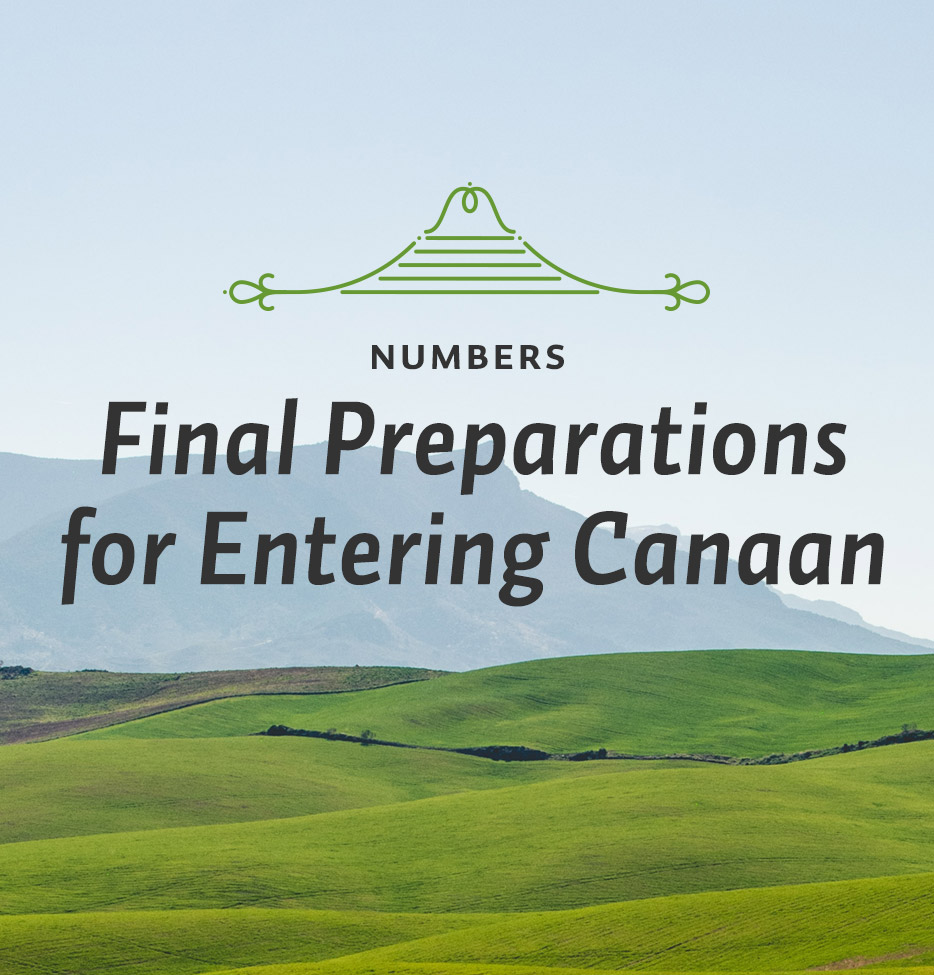Chapter 31 is the last actual narrative section in Numbers, and it tells about this war against the Midianites, a very fierce war in which all the Midianites were killed. Since the Midianites were not in Canaan, we might wonder why this particular story is included. It seems like a digression from the task of preparing to cross the Jordan River and into the promised land. Why is this story here? There are a few reasons. First, it’s part of this ongoing story of the advance of the people toward Canaan. Second, it’s a foretaste of the conquest itself. The conquest involved the extermination of the Canaanite people, and that’s the emphasis in this war against the Midianites. They were all to be exterminated. Third, the account concludes the story of Balaam. When we left him back in Numbers 24 he was alive and well. Now we find out that he is executed in connection with the Midianite war, because he caused the people of Israel to sin in the matter of the pagan women.
The real question with this Midianite war is the moral question. The people are told by God to go in and kill all the people of Midian—not just the men or the soldiers, but also the women, children, and animals. And this was only the beginning. God also instructed them to do the same thing to the Canaanites when they went into the promised land. This did not always do this, and God warned them that they would have trouble if they did not obey Him in this. That God would tell the Israelites to do this rightly disturbs people. How could God tell His people to go in and slaughter an entire people?
Part of the answer is that this was a judicial act of God. This wasn’t merely something that the Israelites thought up. If they had decided to do this on their own, their actions wouldn’t have been any different than that of the Egyptians when they killed all the male Hebrew babies. But God appears here as the Judge of all the universe, using the Israelites as His agents to execute divine judgment on human beings for their sin.
This is spelled out back in Genesis 15, when God was promising the land to Abraham. He explained that the Israelites weren’t going to get the land for another four hundred years because “the sin of the Amorites has not yet reached its full measure” (v. 16). This means that God was going to allow these people to go on sinning for another four centuries before He judged them, using the Israelites to be His instrument.
This happens in history. When nations rise and they come to the pinnacle of power, they consider themselves to be better than other people. Their pride destroys them, and God in one way or another brings them down. He’s done that throughout history, and God will perhaps judge America in the same way.
People assume that the Canaanites were innocent, or at least no worse than anyone else. But of course, the Canaanites were far from innocent. They were a very sinful people. And whenever we assume innocence, what we forget is that the real question is not why some are judged, but why some are spared. This is really about the mercy of God in sparing some, not with His justice in punishing those who deserve it.
Jesus dealt with this idea in a very short passage in Luke 13. There was a recent tragedy in which the soldiers of Herod had fallen on some unsuspecting Galileans when they were in Jerusalem offering their sacrifices. In addition to this, a tower in Jerusalem, the tower of Siloam, had collapsed and killed eighteen people who did not appear to be more sinful than any others. How could God let something like that happen? People could suppose that either he is not powerful enough to stop these tragedies from happening, or he is not loving enough to care.
Here is the way Jesus answers, and it’s very profound: “Do you think that these Galileans were worse sinners than all the other Galileans because they suffered in this way? I tell you, no! But unless you repent, you too will all perish. Or those eighteen who died when the tower in Siloam fell on them—do you think they were more guilty than all the others living in Jerusalem? I tell you, no! But unless you repent, you too will all perish” (vv. 2-5).
Whenever we question the morality of God’s actions, we are asking the wrong question. We are on dangerous ground. What we should be asking is why this hasn’t happened to me. Why am I still living? Why am I not now in hell? God is a moral God and He punishes sin. Our problem is that we have forgotten how sinful we are. We don’t realize that it is not justice that we need from God, but mercy. What we need is His grace.






